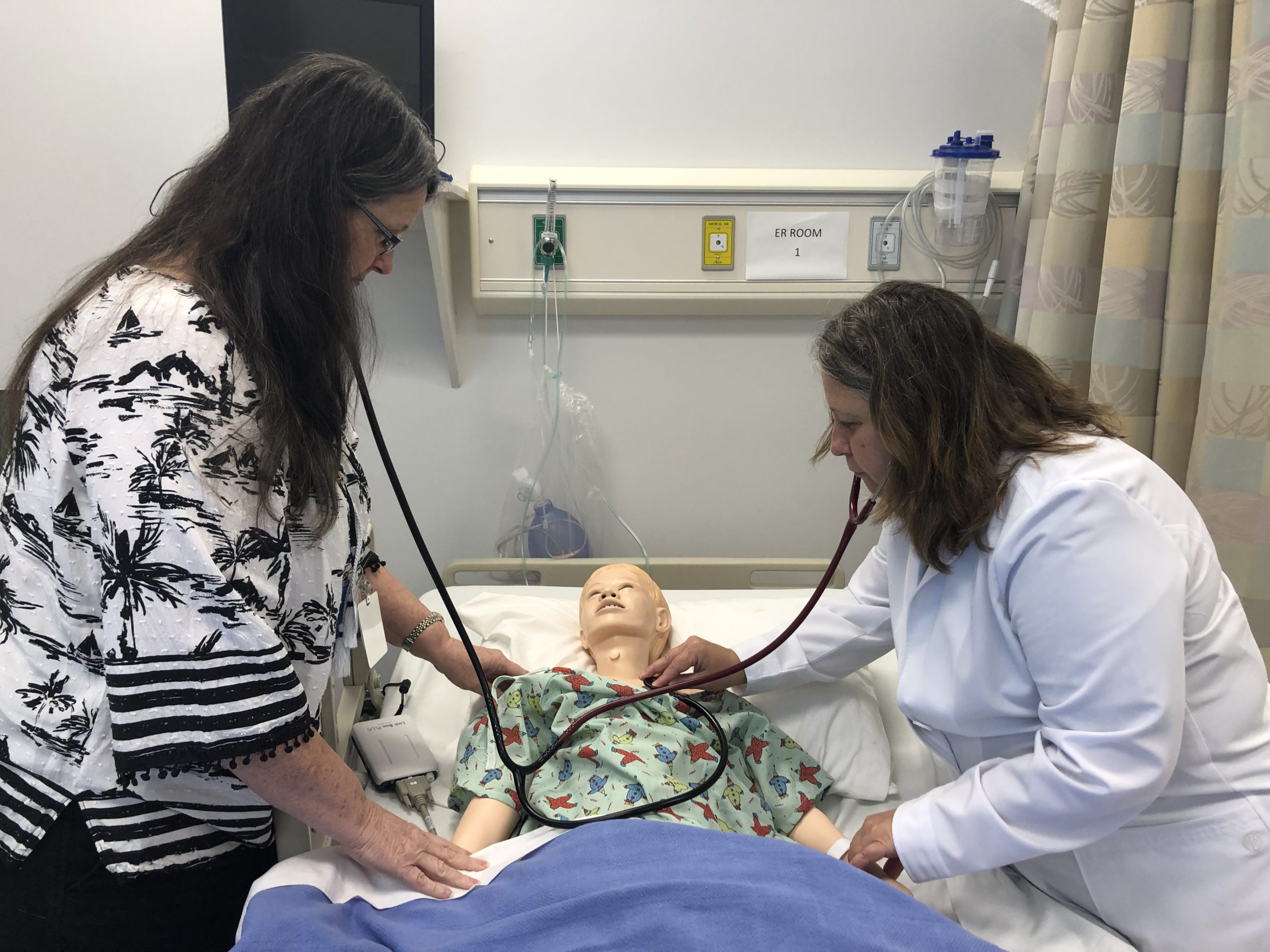
Despite limitations due to the COVID-19 pandemic, community colleges have found ways to innovate, adapt, and serve students while continuing their mission of producing a high-quality workforce to meet the needs of employers, including hospitals, community health centers, long-term care facilities, and doctors’ offices.
This spring, almost all community college classes were forced to move to online instruction mid-semester. Although many hospitals ended clinical rotations for students, the North Carolina Board of Nursing worked diligently to help colleges come up with solutions to allow students to meet their graduation requirements. Ensuring a pipeline of graduating nursing students flowing into the local healthcare workforce is critical. Now, more than ever.
All 58 community colleges in the state faced the unprecedented challenges of continuing this essential training in unique and proactive ways. At Halifax Community College (HCC), faculty and staff worked hard to help their 20 second-year Associate Degree in Nursing (ADN) students finish their degrees and transition into local healthcare jobs.
“We were fortunate to work with the North Carolina Board of Nursing to ensure our students maintained a high-quality education without sacrificing their well-being,” said Dr. Jeffery Fields, Vice President of Academic Affairs. “We used all of our clinical collaborators and operated our simulation labs at maximum capacity to get our second-year nurses into the workforce. It is because of our strong partnership with the Golden LEAF Foundation, and its generous contribution to the education of our nursing students, that our nursing faculty was able to keep the pipeline moving.”
In June 2019, Golden LEAF enhanced HCC’s nursing program by upgrading the college’s simulation lab, supporting an enrollment and retention specialist, and providing professional development opportunities to ensure optimal delivery of instruction.

“Without the support of the Golden LEAF Foundation, none of this would have been possible,” said Fields. “That support allowed us to maximize our clinical simulation experiences and ensure students met the required number of clinical hours.”
In preparation for the ongoing fight against COVID-19, HCC is not only adjusting to these unique times but is also preparing for its largest incoming cohort of students in several years.
“The primary difference is the changes made to improve retention rates, thanks to the new enrollment and retention specialist funded by Golden LEAF,” said Kelly Eller, HCC Program Director for Nursing. “We have seen tremendous growth from Fall 2018 to Fall 2020.”
The nursing program is accepting 73 incoming students for the fall of 2020, an increase of 56 students from fall 2018 and increase of seven from fall 2019. In addition, the program has 22 ADN students entering their second year.
“All of the nursing faculty at HCC are currently working on various plans for the fall, most of which include the use of new technology to ensure we are meeting all social distancing and personal protective equipment requirements,” said Fields.
Similarly, Pitt Community College (PCC) faculty has worked with the North Carolina Board of Nursing and the North Carolina Respiratory Care Board to provide the clinical hours needed to graduate 93 nurses and 11 respiratory therapists this spring.
“The support from Golden LEAF has provided Pitt Community College the opportunity to enhance our educational and training capabilities to meet the growing demand for healthcare providers in eastern North Carolina,” said Donna Neal, Dean of PCC’s Health Sciences Division.

Due to the COVID-19 pandemic, the North Carolina Respiratory Care Board reinstated the Respiratory Care Assistant (RCA) program, which allows respiratory therapy students to work under the supervision of licensed respiratory therapists. Eight of PCC’s second-year respiratory therapy students worked in RCA positions with Vidant Health before graduation. All 11 PCC respiratory therapy students secured fulltime jobs before they graduated.
In April 2020, Golden LEAF awarded $2.4 million to support five nursing programs in the Sandhills Prosperity Zone through the Foundation’s Community-Based Grants Initiative. These programs will help expand existing programs to create a regional approach to building the healthcare workforce.
Fayetteville Technical Community College (FTCC) was awarded funding to create a dedicated simulation suite for healthcare programs to support increased enrollment.
Mark Sorrells, FTCC’s Senior Vice President for Academic and Student Services said the need to fill these jobs with qualified professionals is critical.
“We are seeing an uptick in students interested in going into the healthcare field,” Sorrells said. “The Golden LEAF-funded project will help us ramp up the nursing program and provide the extra capabilities we need to move students through the pipeline more quickly.”
In Cumberland County, many host clinical sites closed access to community college students. Sorrell’s team worked with the North Carolina Board of Nursing to come up with an innovative solution to get these essential workers the clinical hours they needed to enter into the field.
“We had faculty working with students on 12-hour shifts,” said Sorrells. “The teams would meet virtually, the instructor would present a problem with a patient, and the students would have two hours to come up with a comprehensive plan to address the issue. The instructor would then provide video feedback on how the patient would react.”
Sorrells commends his staff for the creative solutions they provided during a time of crisis and the hours they poured into their students.
In the face of such an unprecedented upheaval of normal protocol, the mission of the community colleges to open the door to high-quality, accessible educational opportunities has never been more urgent. Golden LEAF is honored to be a part of this important task.